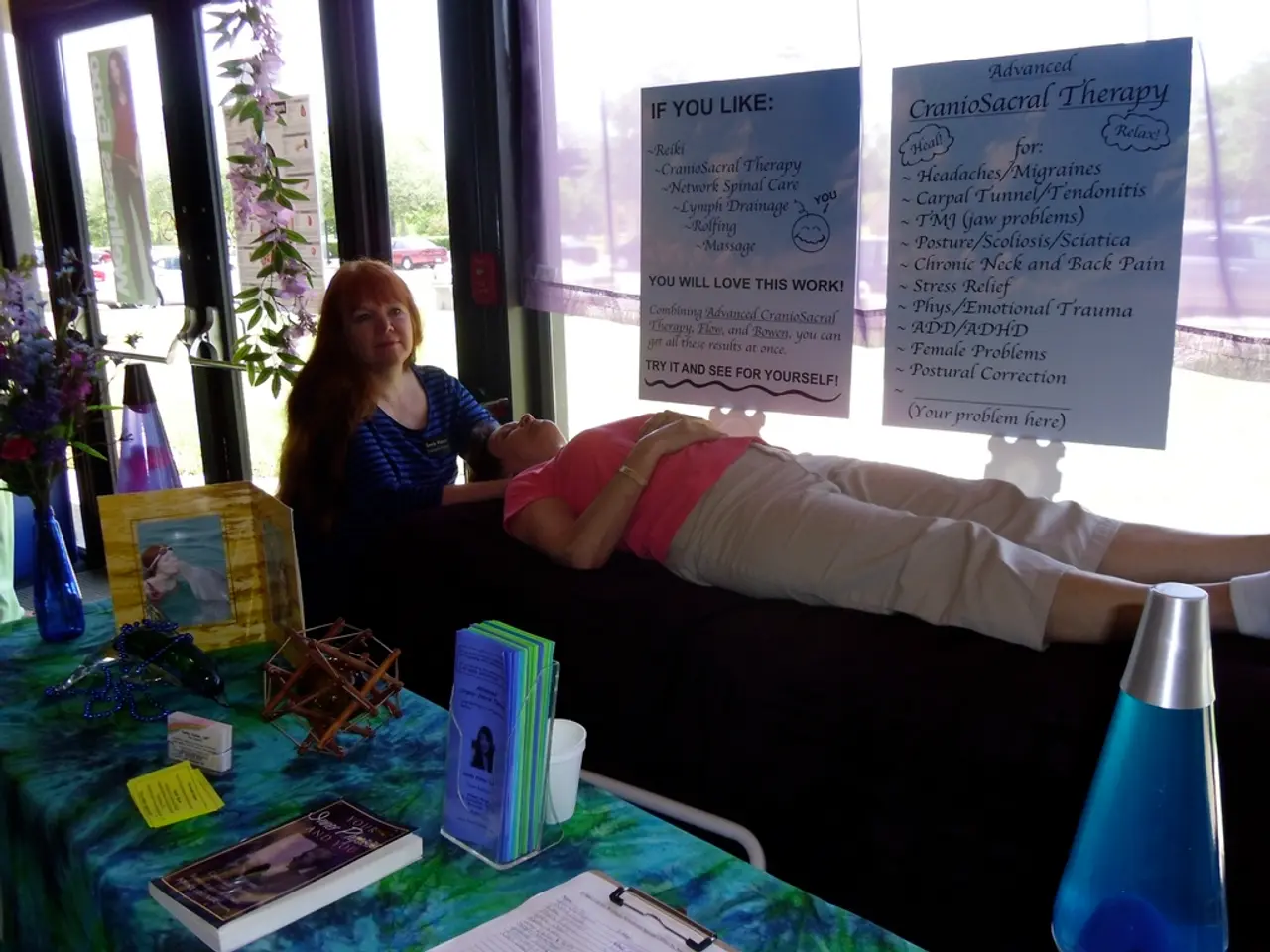Women's Retreat Offers Solace and Coping Strategies for Modern Women Battling Menopause Issues: "We Deserve More Than Suffering in Silence"
In the journey of womanhood, menopause often marks a significant milestone. This transition, accompanied by various physical and emotional symptoms, is now being approached with a renewed sense of holistic care.
Holistic treatment options for managing menopause symptoms like hot flashes, anxiety, and night sweats are gaining popularity. These approaches include personalized nutrition plans, tailored exercise routines, mind-body therapies, and natural supplements.
Personalized Nutrition plays a crucial role in this holistic approach. Functional medicine practitioners often suggest individualized meal plans to reduce inflammation and balance hormones. Elimination diets or food sensitivity testing may be used to identify triggers.
Exercise, particularly stress-reducing activities such as yoga, tai chi, and gentle aerobic exercises like swimming or brisk walking, help calm the nervous system and improve mood. Strength training supports muscle mass and metabolism affected by declining estrogen.
Mind-body therapies like mindfulness-based stress reduction (MBSR), relaxation exercises, hypnosis, acupuncture, and aromatherapy can alleviate symptoms by lowering stress and improving emotional well-being.
Natural Supplements and Herbal Remedies, such as phytoestrogens found in soy and flaxseeds, black cohosh, red clover, evening primrose oil, L-theanine, St. John’s wort, and Asian ginseng, may reduce hot flashes and anxiety symptoms. However, it is essential to consult healthcare professionals before use due to potential interactions and safety concerns.
Some women prefer homeopathic remedies for a drug-free, natural approach to symptom management.
M/Power, a four-day holistic menopause retreat, offers relief, education, and counseling for menopause symptoms. The retreat includes medical diagnosis, such as blood work, hormone panels, and a DEXA body scan, to assess factors like fat composition and bone density. Activities like yoga, weight training, and cold plunges are also included to help manage menopause symptoms.
Tamsen Fadal, a former TV journalist, emphasizes the importance of community in managing menopause. She wrote the book "How to Menopause" as a "how-to" guide for women starting perimenopause or menopause.
Most doctors recommend taking hormones before turning 60, or within 10 years of starting menopause. However, hormone therapy (HRT) is a potential option for women to curb menopause symptoms, but some fear it due to preliminary findings linking it to increased risk of breast cancer.
Monica Conn, aged 53, is undergoing a menopause retreat at Canyon Ranch Health Spa. She expresses a desire to change the attitude towards menopause and view it as the start of a new chapter rather than an ending.
In conclusion, holistic management of menopause symptoms involves a comprehensive, individualized plan combining nutrition, physical activity, stress reduction techniques, and selected natural remedies to address both physical and emotional symptoms effectively. It's a journey of self-discovery and empowerment, and resources like M/Power are providing valuable support for women navigating this transformative phase of life.
- The transition of menopause, with its various physical and emotional symptoms, is now being approached with a renewed sense of holistic care, including breaking news about personalized nutrition plans and mind-body therapies.
- In the quest for holistic care, exercise plays a significant role, offering stress-reduction activities and strength training that supports muscle mass and metabolism affected by declining estrogen.
- Natural supplements and herbal remedies, such as phytoestrogens, black cohosh, red clover, and Asian ginseng, are gaining popularity as a means to alleviate symptoms like hot flashes and anxiety.
- Resources like M/Power, a holistic menopause retreat, provide relief, education, and counseling for menopause symptoms, encouraging women to view this phase as a new chapter rather than an ending.




